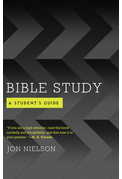Have you heard the statistics that 80% of teenagers raised in the church abandon the church when they go off on their own?  These are not fringe students who occasionally attend, but the youth group leader-types bailing out of the church. Alarm bells should be sounding if you are a Christian parent. And statistics like this should serve as a huge wake-up call to the Church that somewhere we are missing the mark. I would go a step further and say it’s not just missing the mark with our kids, but a disconnect for adults, too! Just think about how many profess to be “Christians” and all the churches everywhere, mega-churches even, and all the Bible studies and parachurch groups that meet weekly, YET relatively speaking Christians do not really look any different than the world. Hearts are not be transformed. Why is this?
These are not fringe students who occasionally attend, but the youth group leader-types bailing out of the church. Alarm bells should be sounding if you are a Christian parent. And statistics like this should serve as a huge wake-up call to the Church that somewhere we are missing the mark. I would go a step further and say it’s not just missing the mark with our kids, but a disconnect for adults, too! Just think about how many profess to be “Christians” and all the churches everywhere, mega-churches even, and all the Bible studies and parachurch groups that meet weekly, YET relatively speaking Christians do not really look any different than the world. Hearts are not be transformed. Why is this?
- If people are in church and in Bible studies, why do we not see more changed lives?
- Why does the gospel have such little relevance on us daily in how we think, act and live?
- Why are our kids leaving the church? Why is the divorce rate, teen pregnancy, suicide and drug use just as high among Christians as non-Christians?
 Well, I just finished reading the book Bible Study: A Student’s Guide for teens by Jon Nielson, but to be quite honest the content is something the church and Christian adults need just as desperately. It’s a book on how to read the Bible- on your own or in a group. I know that might sound boring, or maybe even silly to read a book on how to read the Bible, but I believe too many of us are reading our Bibles incorrectly, receiving moralism and not Christ. Hang with me as I explain. In an nutshell, how we view our Bibles will determine how we use the Bible. Therefore, if we view the Bible incorrectly we will interpret and apply the Bible incorrectly. So think about how you view and use your Bible? Is it as…
Well, I just finished reading the book Bible Study: A Student’s Guide for teens by Jon Nielson, but to be quite honest the content is something the church and Christian adults need just as desperately. It’s a book on how to read the Bible- on your own or in a group. I know that might sound boring, or maybe even silly to read a book on how to read the Bible, but I believe too many of us are reading our Bibles incorrectly, receiving moralism and not Christ. Hang with me as I explain. In an nutshell, how we view our Bibles will determine how we use the Bible. Therefore, if we view the Bible incorrectly we will interpret and apply the Bible incorrectly. So think about how you view and use your Bible? Is it as…
- An instruction book on how to live rightly?
- A how-to manual for tackling life’s issues?
- A road map?
- Do you flip through it looking for answers and guidance to certain issues?
- Do you turn to it for inspiration and encouragement?
- Do you pluck a verse or two out and apply them to whatever you are going through?
- Do you read the story looking for the hero or moral?
With each of these premises we are inadvertently inserting ourselves as the primary character. We are going to God’s Word and applying it straight to us. This is not to say we shouldn’t apply it to us, because the Word of God is living and active and timeless and relevant and IS applicable! But the Word of God is foremost the unfolding story of a King and His kingdom. From start to finish, Genesis to Revelation, it is One story, His story!
Before we can ever take the Word and apply it to us, we must read it in its proper context and genre. We must see how each verse, passage, story and book fits in to the bigger story of Redemption. Nielson in his book does an excellent job of explaining the importance of these truths so we learn to see Jesus as the coming King and answer to the brokenness and sin in the Old Testament. And see Him as our Life, not just as our example, in the New Testament. He is the only One who perfectly accomplished God’s commands. There is nothing we can do to earn it and though we may declare this to be true, we don’t live like we really believe it.
If we are constantly trying to be a better Christian by behaving better or through attending more Bible studies or church services then we are living out of our own self-reliance and self-righteousness. Growing in Christ comes in seeing our sin and need of a Savior. And, in living a life of repentance and dependance on Him… but this only comes when we have a magnified view of Jesus!
This is why reading the Bible correctly matters!
If we approach it focusing on morals or law, basically what we need to do, then we miss Him. But if we read it focusing on the gospel story (throughout the whole Bible, not just the New Testament) then our view of God grows exponentially. We begin to see the enormity of our failures and sin against God, but instead of trying to cover it up, down-playing it, working harder and eventually giving up in despair, we are now in greater awe of a King who pours out His grace on us. This is the transforming power of the gospel and it is the only thing big enough to keep us from not giving up on God or the Church. In the final chapters of the book Nielson gives us the tools and aids to proper Bible study – what it should look like in a group context and what it should not.
As a leader to teen girls and in women’s studies myself this was extremely beneficial and a challenge to me to make sure I always allow Christ to shine through each passage before bringing in the application. It also made clear to me the harm in attending Bible studies and being in the Word that do not focus primarily on Christ first! We think we are “growing” because we do these things when really all we are getting is fluff… or more to do to be better on our own. Sadly, this is why many “Christians” fall away- they simply get tired of trying and not “progressing” or worn out from the hypocrisy and masks.
Studying the Word of God is sufficient and necessary. Too often, especially with our kids and teens, we think we need to make it more fun so we bring in all these extra things to make it more relevant. But what ends up happening is they are never given a full picture of who Christ is and their great need of Him and eventually the fun and games wear off and there life has never been truly bound up in Him!
We don’t need to add to the Word. Jesus is the Word and He is enough!
With summer starting, I urge you instead of checking out from God for the next few months, maximize this time of less hectic schedules by reading this book for a greater understanding of what this blog post is hitting on. You can order it here: Bible Study: A Student’s Guide After you’ve read it, dive in to the Word, pick a book of the Bible and start talking about it with your family and your friends. Nothing is more life-giving!
Don’t want to miss a post? Enter your email on the upper right-hand column after “Follow blog via email”.

spot on!